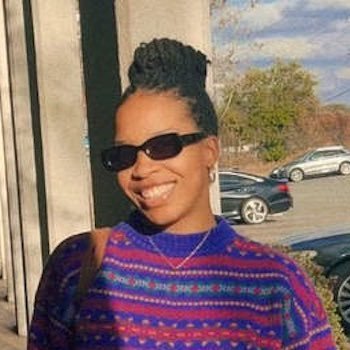
Irena Gao
@irena_gao
Followers
746
Following
231
Media
5
Statuses
67
Explore trending content on Musk Viewer
ميلان
• 1226913 Tweets
BRICS
• 283516 Tweets
Öcalan
• 269410 Tweets
Özgür Özel
• 78700 Tweets
Ümit Özdağ
• 70603 Tweets
NEVER BORED ON NINGNING DAY
• 57510 Tweets
#النصر_الاستقلال
• 53873 Tweets
Eminem
• 52773 Tweets
Blade
• 52702 Tweets
Valdivia
• 52516 Tweets
桜井政博
• 49100 Tweets
Siya
• 42690 Tweets
Celtics
• 39942 Tweets
Dortmund
• 36612 Tweets
Bicol
• 32627 Tweets
APO PİÇTİR PİÇ KALACAK
• 29415 Tweets
Türkiye Türk'tür
• 25957 Tweets
桜井さん
• 23837 Tweets
Knicks
• 19543 Tweets
Yoru
• 17372 Tweets
TXT YOU ARE LOVED
• 14430 Tweets
Yunus Akgün
• 13677 Tweets
#راكان_السهلي_في_شاعر_الرايه
• 11867 Tweets
Pulisic
• 10573 Tweets
Denji
• 10398 Tweets
Last Seen Profiles
@shiorisagawa
and I will be at the ICML 11am poster session tomorrow, Wednesday, presenting "Targeted Augmentations Improve Out-of-Domain Robustness." () 🏝️Come chat with us about how to design data augmentations for robustness!
0
9
52
Excited to be at
#ICCV2023
this week presenting our paper "Adaptive Testing of Computer Vision Models."
Work w/ the incredible
@gabriel_ilharco
,
@scottlundberg
, and
@marcotcr
.
Oral presentation: Wednesday 13:30-14:30
Poster session: Wednesday 14:30-16:30
2
7
47
We're excited to announce a new release of OpenFlamingo models. Check out the blog post and keep an eye out for our technical report!
We are excited to announce OpenFlamingo V2 🦩! We are releasing five new multimodal models, across the 3B, 4B, and 9B scales, that outperform our previous model. w/
@irena_gao
.
Repo:
Demo:
Blog:
13
144
659
0
2
27
Check out our benchmark evaluating the compositionality of CLIP-like models!
Have vision-language models achieved human-level compositional reasoning? Our research suggests: not quite yet.
We’re excited to present CREPE – a large-scale Compositional REPresentation Evaluation benchmark for vision-language models – as a 🌟highlight🌟at
#CVPR2023
.
🧵1/7
3
14
68
0
2
12
@dailyaibrief
ICCV registrants should be able to view a livestream in the Imagina app, under the "Paris Nord" room.
0
0
0
@JKhindkar
We only read PhD applications, unfortunately. I'm not aware of a similar program for the MS, but I could be wrong. Good luck!
1
0
1





























